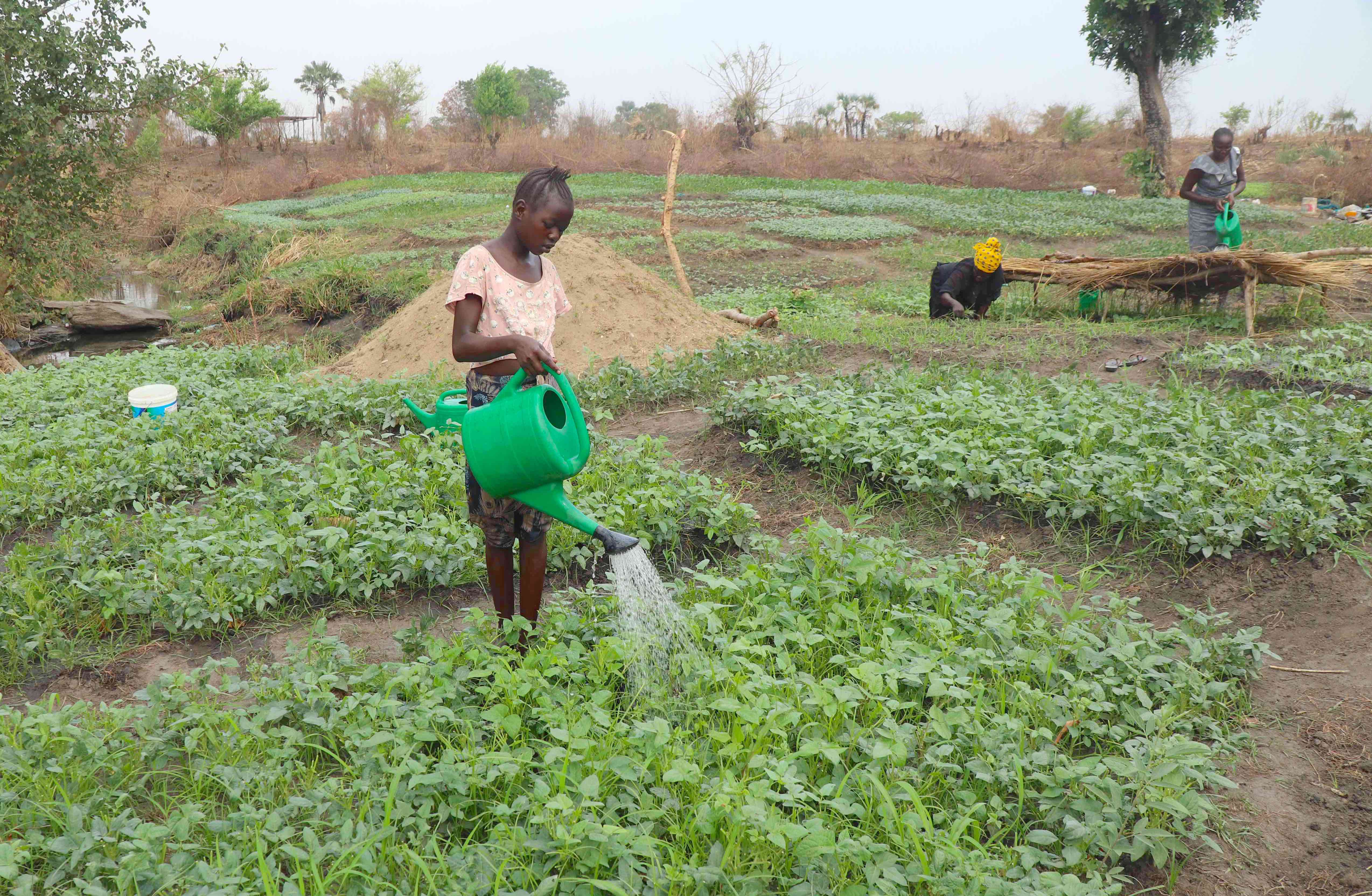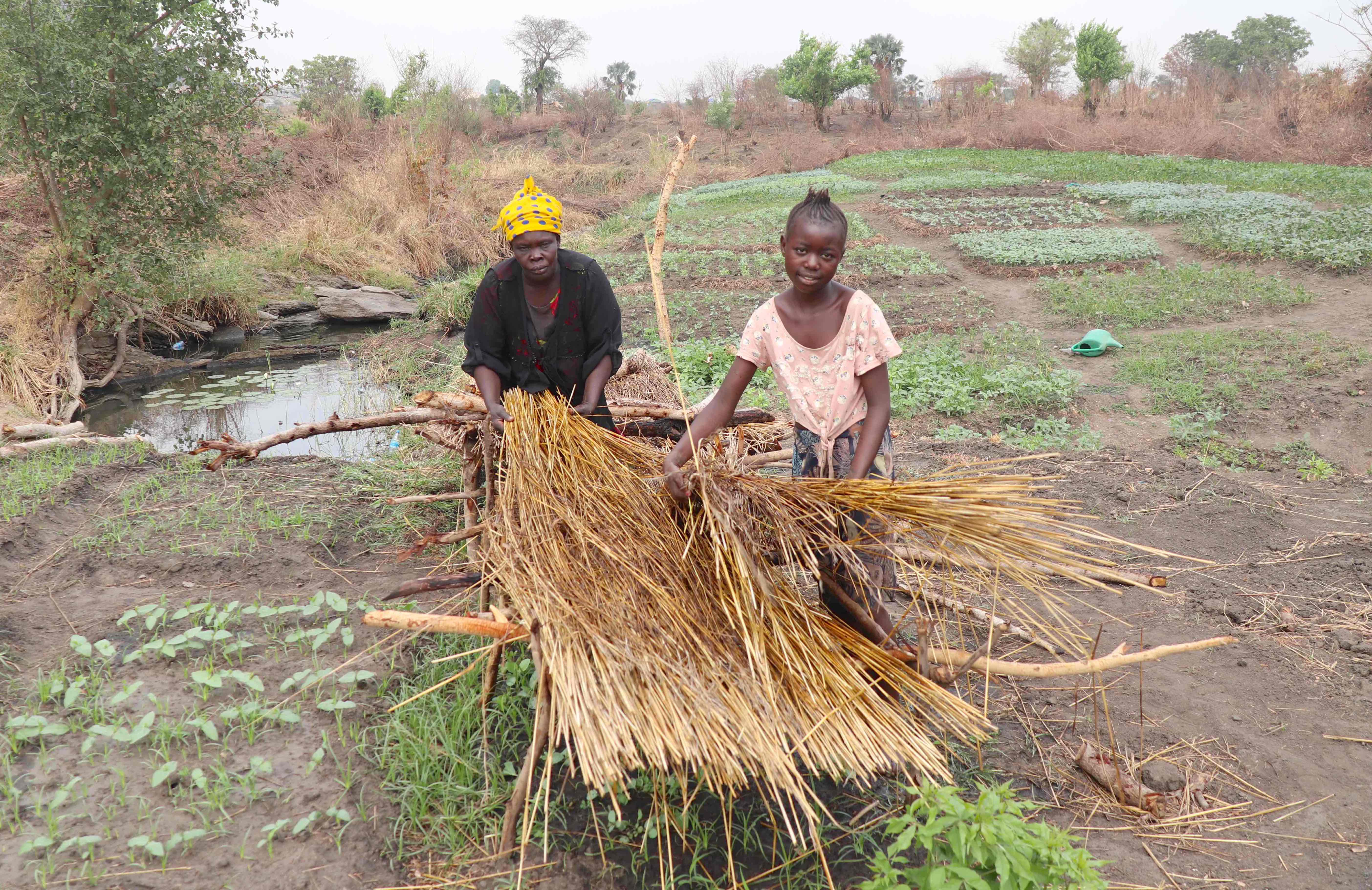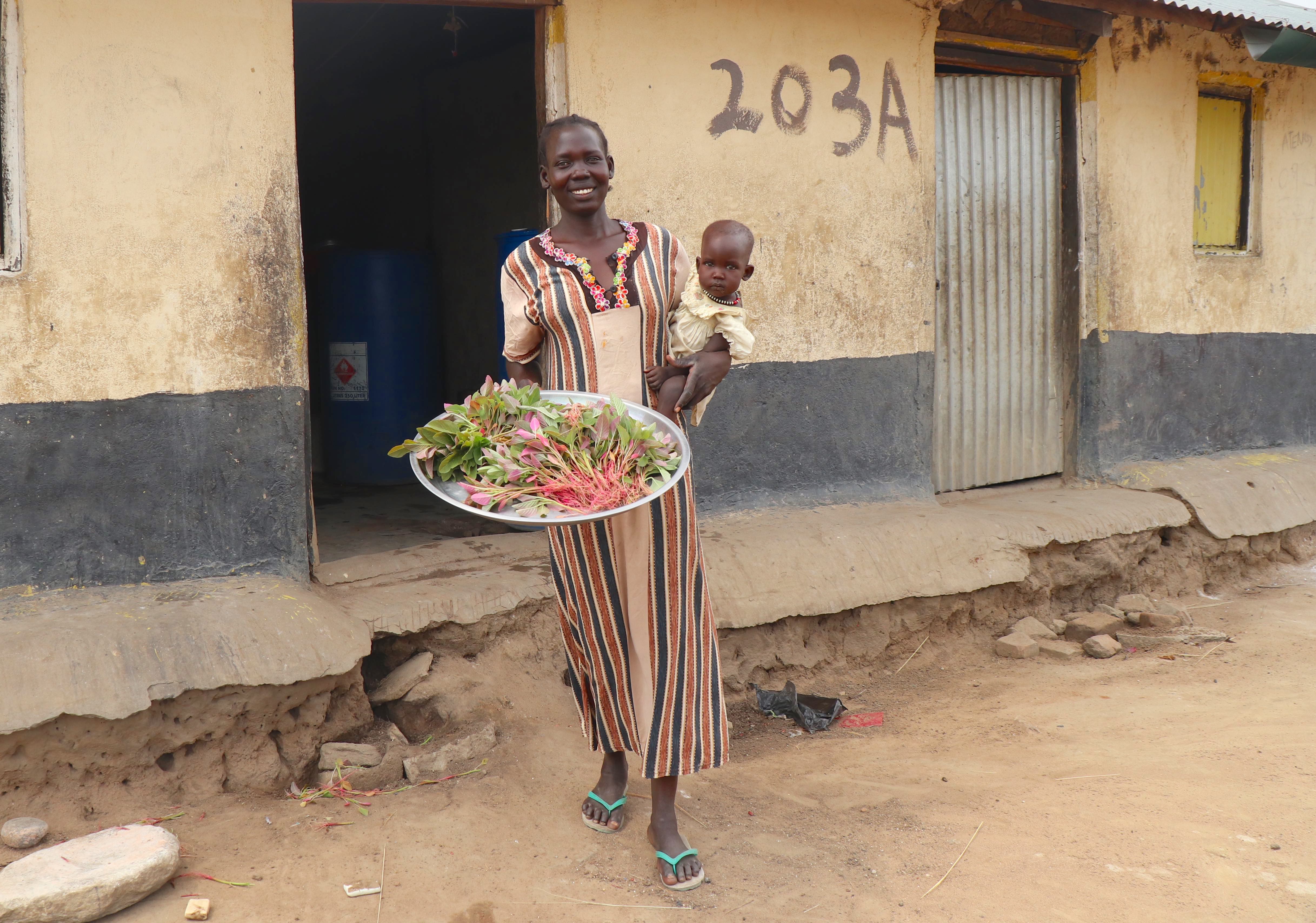Vegetable gardening offers sustainable solutions to hunger and malnutrition for women of South Sudan

Widow Yom Ater, 24, live with her five children in the outskirts of Juba. Growing up in the cattle camp, Yom did not know any other source of livelihood except tending cows and surviving on their milk supply. “Life watching over the cows was all I knew until I got married, and my husband brought me to Juba. He was a soldier and we tried to survive on his meager salary”, Yom shares.
Her husband died in 2017 leaving her with five children to raise. “In the Dinka culture, when you lose your husband, you are inherited by the brother to continue bearing children for your late husband” she adds. But Yom added that in most cases, these men will not support financially, just like what happened to her.

In 2019, she joined World Vision’s Greater Resilience through Enhanced Agriculture and Nutrition (GREAN) Project supported by the Australian Government through the Australian NGO Cooperation Program (ANCP).
The project supports smallholder farmers in South Sudan’s Central Equatoria and Warrap states to increase agricultural production through input support and trainings, as well as, enhance their marketing skills. “Our first year of harvest cleared the debts I owed since mid-2020. I was able to earn enough to send my 13-year old daughter Atong to school”, Yom proudly shares.

Although Yom was part of the group, her finances suffered with high prices of food and healthcare. The sales of her sorghum and groundnuts were not enough for the family’s needs. Always resourceful, she looked for opportunities to augment the income.
In January 2022, World Vision approached lactating and pregnant women for vegetable production. The initiative’s goal is to improve gardening skills and improve quality of life of families through consumption of fresh organic vegetables.
Our first year of harvest cleared the debts I owed since mid-2020. I was able to earn enough to send my 13-year old daughter Atong to school.
Over 5,000 smallholder farmers in Juba have actively joined and benefited from this project. “If it was introduced earlier, my family would not have suffered hunger and my children would be in school, and my child Nyandeng did not suffer from malnutrition”, she says.
Sarah Foni, Project Manager says, “The mothers are supported with tomatoes, onions, eggplants, okra, carrot, cabbage, cowpeas, rigla, kudra (jew mallow) seeds, cassava and sweet potatoes that provide good nutrition especially for pregnant and lactating mothers and children.”

Yom said her children now attend school and eat well. “This year will be better as I harvest a variety of vegetables every week for food. I will sell the sorghum and groundnuts to pay for the children’s school fees and still save some for consumption”, she adds.
She happily added that Nyandeng’s health is getting better because she eats a lot of vegetables. Grace, 12-years old, is also among the children whose parents are supported by World Vision’s project. “I am studying in primary four now because my mother was supported. If not, I am among the many children with no opportunity to go to school”, says Grace.

The group’s leader Elder Atim, 46, and a mother of five, do the farm work assisted by her children. “My husband only earns SSP 1,200 (USD3) daily which cannot even buy anything. That’s why I always said this project is a God-send to us”, Elder adds.
The 2022 South Sudan Humanitarian Needs Overview released by UNOCHA estimates that more than two-thirds of South Sudan's population, or an estimated 8.9 million people, are in need of humanitarian assistance, which has increased to 600,000 from 2021.

Story and photos by Scovia Faida Charles Duku, Communications Coordinator